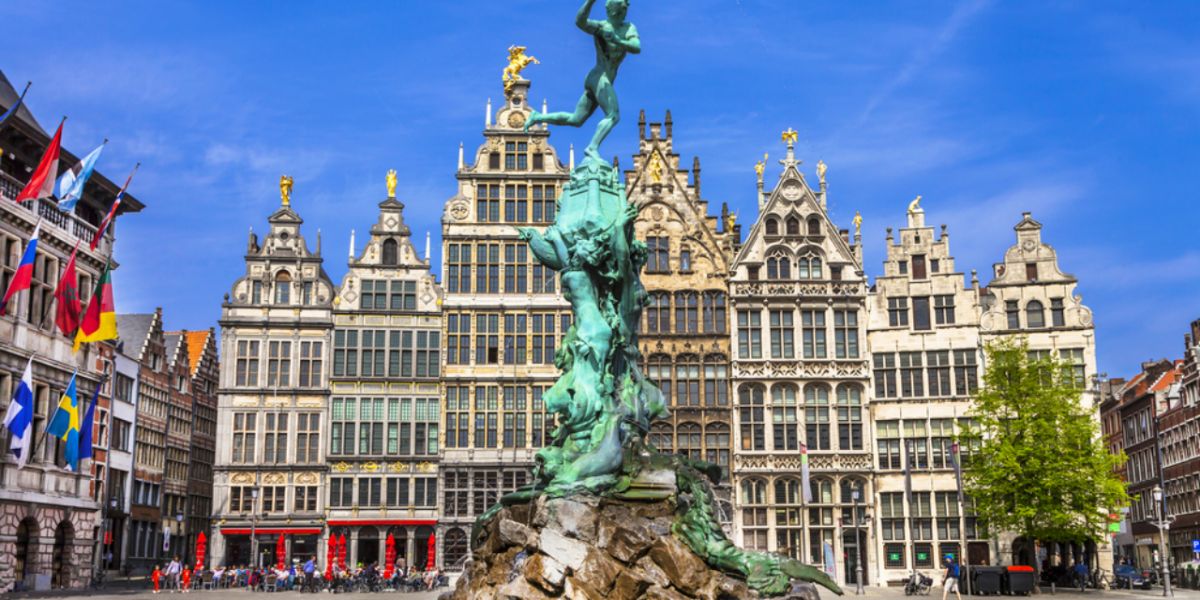
Looking to work in Belgium? Good news: the job market remains stable and full of opportunities. But before applying, it's better to understand how the Belgian system works: procedures to follow according to your nationality, sectors that recruit, platforms to find a job, codes to follow for the CV and cover letter… In this article, we provide you with all the keys to successful job hunting and starting your professional life in Belgium under the best conditions.
The job market in Belgium
Since the 2020 pandemic, the Belgian job market has undergone numerous changes. After a historic 12.1% drop in GDP in the second quarter of 2020, recovery has been gradual. By 2022, the most affected sectors managed to bounce back, and the momentum remains positive in 2025.
According to the latest figures from Statbel (June 2025), the unemployment rate in Belgium is around 6.2% for the population aged 15 to 64. The employment rate for those aged 20-64 is approximately 72%. Therefore, Belgium continues to display a relatively stable and dynamic job market. Opportunities abound, particularly in certain key sectors.
The fields of healthcare, education, logistics, and social and public services consistently show a demand for labor. These sectors regularly recruit, offering interesting prospects for qualified professionals, including expatriates. Conversely, the hospitality and catering sectors, although on the rise since 2023, continue to offer more temporary contracts than permanent positions.
Accessing the Belgian job market
For European Union nationals
If you are a citizen of the European Union (EU), the European Economic Area (EEA), or Switzerland, you can freely settle and work in Belgium thanks to the principle of free movement. Once there, you will simply need to register with the local municipal administration of your place of residence to obtain a residence permit.
For Nationals from other countries
If you come from a non-EU/EEA/Swiss country, the situation is different. You will need to obtain an authorization to work in Belgium. Generally, it is your future employer who must request this authorization from the regional authorities before your hiring.
Searching for a job in Belgium
To start a job search in Belgium, several channels are available depending on your profile, sector of activity, and targeted region. The country has a robust network of public employment services, with dedicated regional portals: Le Forem in Wallonia, the VDAB in Flanders, Actiris for Brussels-Capital, and ADG for the German-speaking Community. These platforms offer not only regularly updated listings but also advice, training, and personalized support.
In parallel, many private recruitment agencies play an active role in the Belgian market. They can facilitate access to certain offers in specific sectors such as finance, engineering, or business services. It is also wise to consult specialized job sites like Stepstone, Indeed, Jobat, or LinkedIn, which aggregate numerous local and international listings.
The print media also remains a useful source. Weekend editions of newspapers such as Le Soir or De Standaard often contain entire pages dedicated to job offers.
Finally, don't forget about unsolicited applications. In Belgium, a significant portion of recruitment occurs outside of published ads. Directly contacting a company or leveraging your professional network can be very effective. If you are already working for an international company, a transfer to a Belgian subsidiary is also a path worth exploring.
Preparing your application in Belgium
The Belgian CV
To land a job in Belgium, you need to send a good CV and a strong cover letter. There's no need to overdo it, but there are some codes to follow to ensure your application is well-received.
For the CV, keep it simple, clear, and effective. Generally, two pages are more than enough, even if you have considerable experience. List your most recent professional experiences first, with dates, positions held, what you did, and, if possible, what you achieved. Belgian recruiters appreciate honest applications without exaggeration.
Add your degrees, skills (IT, languages, certifications, etc.), and don't forget to specify your language proficiency. You can also mention your interests, especially if they are regular or unique activities. Having two people ready to recommend you is a plus.
The language of your CV depends on the region where you are applying: Dutch in Flanders, French in Wallonia, and sometimes English (or both) in Brussels. Also, adapt to the sector of activity. In any case, make sure to include your up-to-date contact information: name, phone number, email, address, etc.
The cover letter remains important in Belgium, even for unsolicited applications. It's your chance to explain why you are applying, what you can bring to the company, and why the position attracts you. Be sincere, show that you have done your research, and remain professional without being too rigid. No need for clichés: be yourself, but polished.
If you are invited to an interview, take some time to prepare. Research the company, its projects, and its sector. Recruiters appreciate curious and motivated individuals. Dress appropriately (business casual, unless the sector requires otherwise), arrive 10 to 15 minutes early, and bring a copy of your CV. During the conversation, be positive, polite, and avoid speaking ill of former employers: in Belgium, modesty is often better received than overconfidence.
In short, prepare your application well, show that you are motivated and professional, and remain natural. This mix often hits the mark here.
Types of employment contracts in Belgium
Belgian employers have several contractual options depending on their needs and the job characteristics. The permanent contract (CDI) remains the standard for stable jobs. It offers employees job security and grants access to full social benefits and labor rights.
Contracts are often written in Dutch, especially in Flanders. Do not hesitate to request a translation in French or English if needed.
The fixed-term contract (CDD), on the other hand, is often used for temporary assignments, replacements, or projects with a defined end date. Its duration is usually specified upon signing, with specific rules for renewal or early termination.
Temporary contracts, meanwhile, are managed by specialized agencies and concern short-term assignments. They are widely used in logistics, administrative, industrial, or service sectors. There are also replacement contracts, set up to cover the temporary absence of an employee (illness, maternity leave, etc.).
It should be noted that employment contracts can be written in Dutch, French, or German depending on the region. In Flanders, most documents are in Dutch. Do not hesitate to request a translation in French or English if you are not comfortable with the contract's language.
Salaries and social charges in Belgium
Salaries in Belgium are regulated and often negotiated at the sector level through what are called collective agreements. In other words, employers, unions, and employee representatives discuss base salaries, bonuses, and working conditions together.
Since February 2025, the gross minimum wage in Belgium is set at €2,111.89 per month. This can obviously vary depending on your sector, experience, or the type of contract you sign.
Once you receive your salary, be aware that a portion will go to social contributions. As an employee, you will contribute about 13% of your gross salary. This amount is automatically deducted, so you don't have to worry about it. On their part, your employer also contributes: about 27% of the gross salary additionally, which represents a significant part of their labor cost.
Finally, there are, of course, income taxes, which are calculated based on your personal situation: are you married? Do you have dependents? One or more incomes in the household? In Belgium, tax is withheld at source, meaning everything is already deducted before your salary reaches your account.
In summary: the salary shown on your contract is not what you will receive net, but the Belgian social system provides good access to healthcare, retirement, and security in case of hardship. It's a balance between deductions and social protection.
Professional culture and work environment in Belgium
Working in Belgium often means striking the perfect balance between efficiency and quality of life. The work atmosphere is generally relaxed, without sacrificing seriousness or productivity. Autonomy, collaboration, and a sense of responsibility are valued. Although hierarchy exists, it remains quite flexible: everyone knows their role, but exchanges are open and respectful.
The workweek averages around 38 hours, with fairly regular hours. More and more companies offer forms of flexibility, notably remote work, especially since the pandemic. The lunch break often lasts an hour, and many people truly take it, as it's an important moment to relax.
In the office, punctuality is appreciated. Relationships are professional yet human: you might quickly switch to first-name terms, especially in young or creative environments. Colleagues are often courteous, direct, and considerate. Decision-making is done in a spirit of consensus, which might surprise some expatriates used to more vertical models, but it reinforces a climate of trust.
Regarding dress code, “business casual” is the norm in most sectors. However, in fields like finance, law, or certain managerial roles, a more formal dress code is required. It's best to observe your environment during the first few days, then adapt.
Finally, the work-life balance is taken seriously in Belgium. Professional calls or emails in the evening or on weekends are generally avoided. Stress levels naturally vary according to the profession, but rest periods are respected, and quality of life is clearly a priority for many employers.
Regarding leave, rights are well defined. A full-time worker is entitled to 4 weeks of legal leave per year, with additional days possible depending on the collective agreement or seniority. There are also several types of special leave: maternity, paternity, or birth leave, parental leave (full or part-time), medical assistance leave, or palliative care or close caregiver leave.
In case of illness, employees benefit from salary maintenance for 30 days generally (variable according to status), before switching to an allowance paid by their mutual insurance. The Belgian social system therefore offers good protection in case of hardship, while allowing for a balanced professional and private life.
In summary
Working in Belgium means joining a stable job market, open to international profiles and rich in opportunities. Whether you come to start your career, take on a new challenge, or simply change your living environment, you will find here a dynamic, structured, and welcoming work environment.
The procedures may seem somewhat technical at first, especially depending on your nationality, but once well-informed and prepared, you will move forward confidently. By crafting your application carefully, understanding the local professional codes, and adapting to the Belgian corporate culture, you put all the chances on your side. Between quality of life, solid social security, and a rather balanced work mentality, Belgium has serious advantages for those wishing to settle there permanently.
Good luck with your endeavors, and welcome to the Belgian world of work!
We do our best to provide accurate and up to date information. However, if you have noticed any inaccuracies in this article, please let us know in the comments section below.








